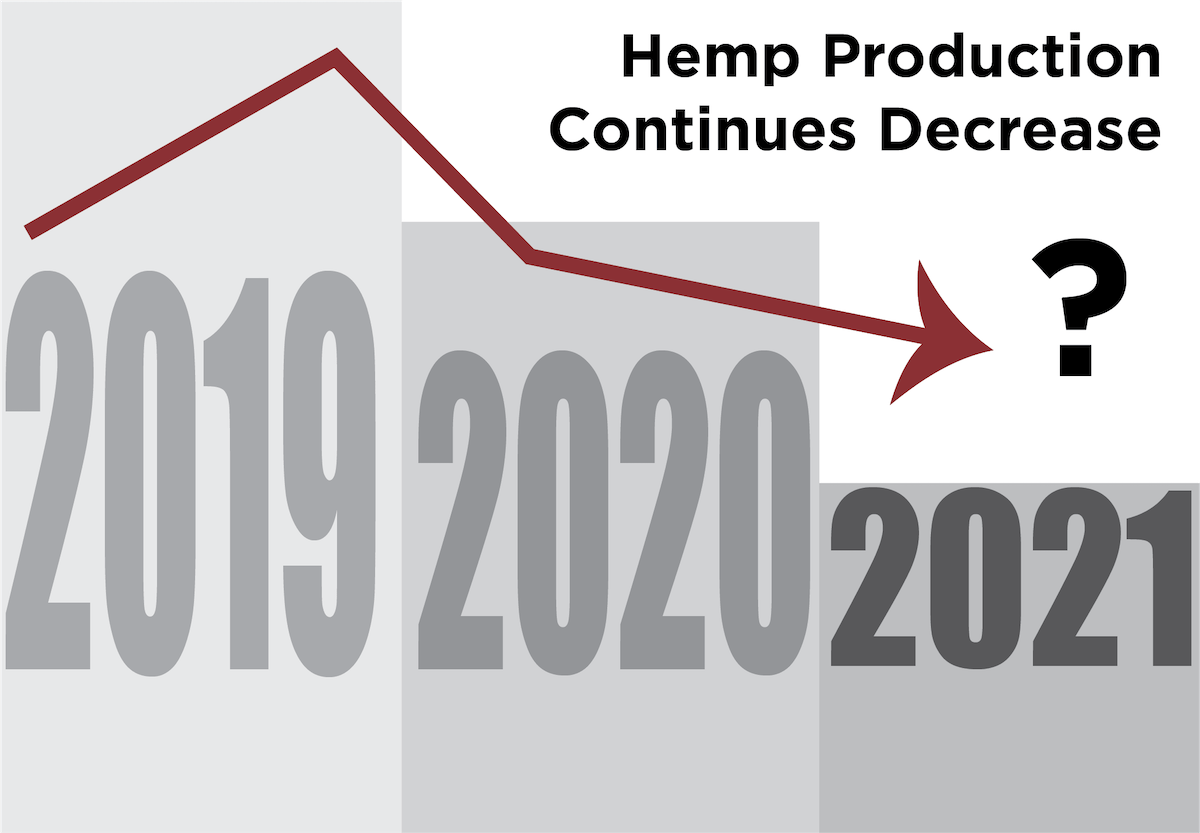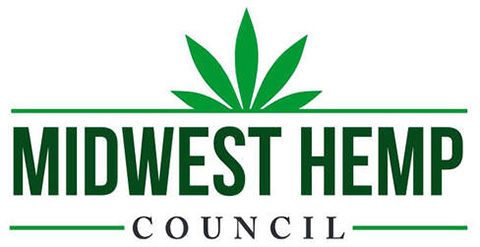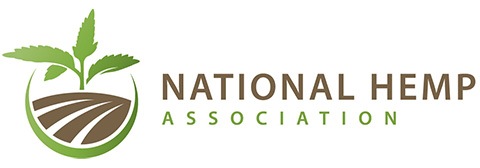
Hemp industry insiders, especially those who have several years of cultivation and processing experience under their belts, believe that the 2020 price crash removed much of the “irrational exuberance” of the “green rush” a year earlier, scaring away the get-rich-quick element that flooded the market in 2019. Early reports from market participants and state agriculture officials, along with trends in prices for traditional agricultural commodities, suggest that 2021 could see U.S. hemp production contract for the second straight year.
“Most of the farmers that have been engaged in the hemp world for the last three years are not planning to grow hemp this year, or are planning on growing hemp fiber, or are hoping for a market which isn’t there yet,” Steve Fuhr, an Oregon-based hemp processor and multi-state industry consultant, told Hemp Benchmarks.
This statement is buttressed by early reporting from numerous state agriculture officials, who have told Hemp Benchmarks that applications for grower licenses are down compared to 2020, although numbers are not yet finalized in most cases. For example, Gail Ellis of the Alabama Department of Agriculture & Industries told Hemp Benchmarks this month that her department expects to issue about 200 licenses to grow hemp this year, down from 422 in 2020. In North Carolina, Paul Adams, the state’s Industrial Hemp Program Manager, wrote in an email to Hemp Benchmarks that he is seeing, “Less interest in licenses, decreases in acreage, and also increased interest in fiber.”
2020 also appears to have been the year when those with a long-game commitment to hemp began to take control of the industry. “The conversation I keep having with growers,” Fuhr said, “is that the science needs to catch up with the products; whether it’s converting seeds to proteins, fiber to industrial use, or CBD or CBG or derivatives like delta-8 to some medicinal use. We need to have somebody come out and say that ‘CBD did X,’ and then I think the market will respond to that.”
Instead, Fuhr predicts farmers will mostly plant more reliable crops like corn and soybeans this year, as prices on those commodities spike, due in part to the COVID-19 pandemic. According to Refinitiv’s Inside Commodities newsletter for February 10, “A dozen farmers interviewed by Reuters said 2021 is shaping up to be their most profitable season in years as corn futures have rallied to their highest since June 2013 and soybean futures to their highest since June 2014.”
Furthermore, on February 19, Inside Commodities noted that the U.S. Department of Agriculture (USDA) is forecasting that American farmers will plant 182 million acres of corn and soybeans this year, “the highest combined total for the two crops on record.” As we have pointed out previously, strong prices for staple crops look as if they could squeeze hemp acreage this season.
For those who are looking to cultivate hemp this year, Pennsylvania-based Andrew Follett, a cultivator and retailer who advises hemp companies on supply chain issues, says he has been advising dual-crop cultivators to “split their CBD crop upwind of their fiber crop, as far away as possible if they’re growing CBD, and to put in more fiber.” He expects the hemp fiber market to grow this year, as investment into fiber processing and manufacturing ramps up.
However, Chip Baker – a cannabis industry veteran who sells ancillary goods to cannabis businesses in Colorado, Oklahoma, Texas, and other parts of the country, and who also has a seed distribution company – has his concerns. While he is working with two different groups that are advancing hemp fiber processing and building technologies, he does not see hemp fiber making a major impact for some time. “A lot of it is logistics,” he said. “Fiber has to be grown in the same area where the cement, the fiber board, the insulation is made. If not, you use up all the money in transportation.” Baker said that most of the people planning to grow this year are either small niche farmers, cultivators with their own vertically integrated operations, or those who have a direct relationship with an extractor.



